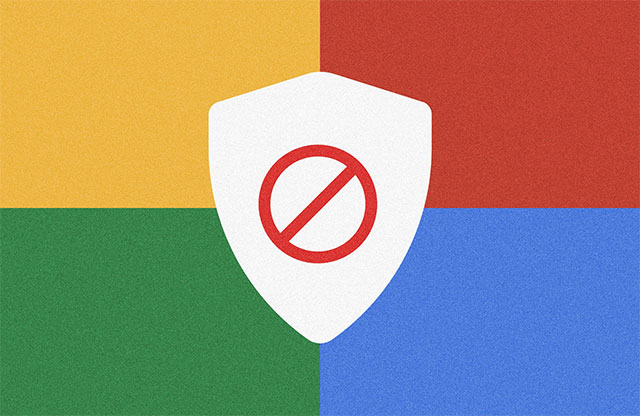Upcoming changes on Google Chrome may remove all ad blocking software
According to observers, in the latest version of Chrome web browser, Google will likely add a feature to 'kill' or minimize the presence and operability of the parts. Ad Blocker software, under the guise of improving privacy and security protection.Is this a wrong decision by the American giant?
- How does Google Chrome 'gluttonous' RAM come?
An 'improvement' for Google Chrome?

According to Google developers, some extensions in the form of ad-blocking software are becoming the leading "purge" target on this new version of the Chrome web browser, which can be mentioned as a program. Block Origin ads, Ghostery tracker, Privowny password and privacy manager, Javascript NoScript software blocker and F-Secure malware blocker.
Of course, after this information leaked, Google suffered a number of conflicting opinions from experts and especially users, but support was less and criticism was more.Google is fighting and defending itself from the "stone" from public opinion, asserting that they only want to improve privacy and security capabilities on Chrome, while maintaining activity 'within the framework' for with all those extensions.
'We just want to make sure that in all cases, the basic use of these utilities is still possible on the new update.The company is also working with extension developers to ensure that these extensions can continue to work on Chrome, while will have to be optimized to better protect the Our users, "said a Google spokesperson.
It is not clear how the Google team discussed it before making this decision, but with the current era of competition, every wrong calculation can make them hurt themselves.Chrome currently accounts for 62% of the global web browser market share.However, if problems arise, extension designers and web developers can turn away from Chrome, causing a real crisis with the platform.

- Google paid a fine of 50 million euros after allegedly violating the General Data Protection Act in France
Not only Google, the problem can also cause far-reaching effects, affecting other "innocent" people like Vivaldi, Opera, Brave and Microsoft Edge because these browsers are also built on the source version. Chrome's open, it's Chromium.
Although ad blocking extensions can be a 'thorny' in the eyes of companies because it directly affects their advertising revenue, but these extensions are beneficial for users and that is the key issue.Only uBlock Origin, this utility has been installed more than ten million times.
In a related statement, Ghostery's developer, Cleryq Cliqz, said this basically means that Google is trying to eliminate ad blocking and calls it privacy.
"Whether Google does this to protect their advertising businesses or simply want to apply their own rules to others, in general, it is still a manifestation of a case. abuse of market dominance to push, impose a growing market in its own right, a truly 'not beautiful' way of doing Google, if this becomes true, we will consider filing a complaint antitrust claims for Google 'acts.
A plan to 'improve' all extensions has been revealed by Google last October.And by now developers may notice that a certain part of this plan is called Manifest v3, which can be harmful to ad blocking software.
- New malware uses Google Drive as a command-and-control server
According to Google, Manifest v3 is designed to improve the performance, privacy and security of Chrome extensions.But in part it will limit how extensions can work on websites.An extension can check if the website components are derived from the list of advertising sources.

Blockade.io, an extension designed to protect users after they click on malicious links, will stop working when Manifest v3 is applied.According to Brandon Dixon, who is responsible for maintaining this extension, the Manifest v3 has a limit for the 30K rule set, which is not enough to handle Blockade.io's ~ 250K rule set.
In a recent personal blog post, Pivowny's developer Daniel Glazman could not hide the frustration of assuming that Google had abused monopoly.Control of browser extensions is entirely in Google 's hands, and they can change it at any time based on their own beneficial purposes.
In the face of protests from developers and users, Chrome team member, Devlin Cronin, eased the situation with a post, arguing that the plan was still in draft status and could be modified. so reasonable, and Google's goal is to minimize the impact on the extensions that are running on the Chrome platform.
- Google will display tedious search results like this when EU copyright laws take effect
In short, no matter what the intention behind these changes is, many people will still consider this to be another Google effort to sell advertising, because destroying ad blockers seems to only be advertising. easier access to users.
So what do you think about this plan by Google?Or let us know in the comments section below!
See more:
- AlphaStar, Google DeepMind's artificial intelligence prevails over StarCraft II players 10-1
- Android apps contain malicious code that uses motion sensors to avoid detection
- Google Maps will have a speed limit display feature on Android and iOS apps
- Google first raised G Suite prices - a move to warm up competition with Microsoft Office 365